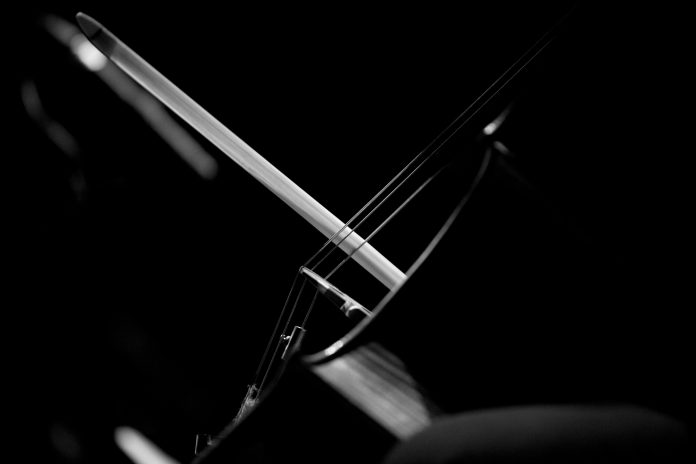Heather Stratfold, a cellist who graced the stages of concert halls in the UK and Australia, embarked on her transition to a more experimental approach to performance in the 1990s when she worked with Jackie Orszarsky.
Like Heather, his musical background was classical, but he also loved African-American sounds and Gypsy music and incorporated them into his compositions. He was a rock star in the 1960s in Hungary and when Heather performed with him his music had morphed into a fusion of blues and the folk music of eastern Europe. Jackie was a ‘funkmeister’ in the Sydney music scene—a funky bass player, one of the city’s leading lights. He was an astute talent spotter and hand-picked musicians for the Jackie Orszarsky Budget Orchestra. Heather performed in several productions, including the James Bond Show at the Harbourside Brasserie.
Heather arrived at the Harbourside Brasserie at 8pm every night. As she opened the heavy glass doors close to the harbour’s edge, she immediately noticed the manky lived-in smell of the old venue. Its low hanging ceiling and dark red interior reminded her of childhood visits to coastal caves with her family. Each night as she wound her way through the tables and chairs on her way to the Green Room, the hairs on the back of her neck bristled with anticipation. There was a special ‘gig’ energy to the place even when it was empty, and she looked forward to the night ahead.
The audience started arriving around 10pm so Heather had time to tune Percy, the valuable cello her mother bought as an investment. If she was alone in the Green Room she practised the more difficult pieces, but once the other musicians started piling into the tiny room—four string players, four brass players, two saxophonists, two bass players, two guitarists and six vocalists—nervous chatter filled the space as musicians prepared for their performance. Heather wore a silky black dress with silver sequins she found at a Salvation Army op-shop and Doc Martens, with black plastic guns strapped to her lower legs.
She was forced to improvise at the Harbourside Brasserie because the lighting was so low on the stage the musicians couldn’t read their scores. Heather listened to the bass line and the violins, and used her harmony knowledge from classical music to work out which notes to play. “Somehow, we scratched something respectable together each night,” she says, “but we faked it much of the time. It was okay for productions like the James Bond Show because we knew the tunes, but it was definitely a steep learning curve.” Each night they belted out pieces like “The Man with the Gun” and the Beatles favourite, “Live and Let Die” to a packed house. The audience started the night sitting at small round glass topped tables but as the champagne flowed, they pushed the furniture out of the way and danced, pushing so close to the stage Heather felt they would fall in her lap.
“Jackie left the orchestra a lot of room to experiment,” she says, “which was an eye opener for classically trained musicians like me who didn’t normally stray from playing the notes on the musical score. I realised I had a good set of ears.”
She loved making up music on the go. “I remember having butterflies in my stomach and sweaty hands while we performed. This was all new to me—but everyone was complimentary about our music and for some reason I always found the groove. I’d just get into the zone and my left hand would do amazing things that I would never have dreamt it could do.”
This is the first instalment of a longer creative nonfiction piece to be completed in June. Stay tuned!


